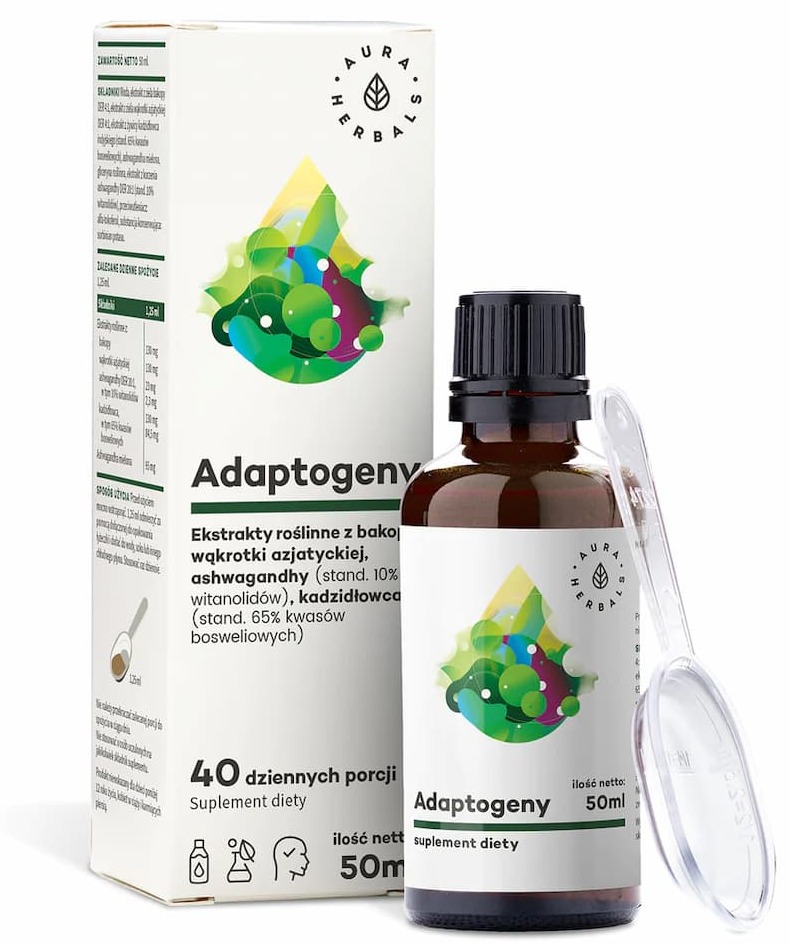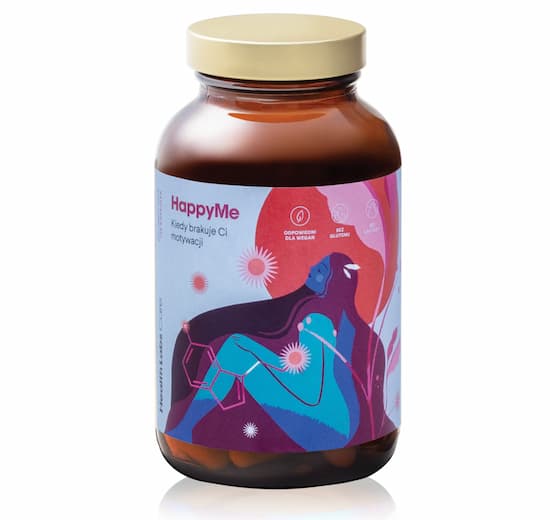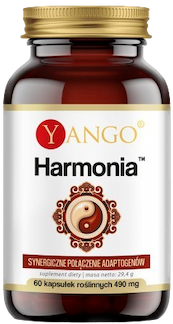Adaptogens - what they are, types, effects, supplementation
Adaptogens are natural substances that support the human body in various ways.


Learn more about our editorial process
.

Learn more about our editorial process
.

Learn more about our editorial process
.

Learn more about our editorial process
.
Why you can trust us
Articles on Natu.Care are written based on scientific research, data from government websites and other reliable sources. The texts are written in cooperation with doctors, nutritionists and other health and beauty experts. Articles are reviewed before publication and during significant updates.
.Learn more about our editorial process
.Information about advertisements
Content on Natu.Care may contain links to products from the sale of which we may receive a commission. When creating content, we adhere to high editorial standards and take care to be objective about the products discussed. The presence of affiliate links is not dictated by our partners, and we select the products we review ourselves completely independently.
.Learn more about our terms and Conditions
.Adaptogens are a mysterious group of plant preparations that are supposed to support our health and well-being through their bioactive ingredients. They have been used for several thousand years in Eastern medicine, among others. Some of them support healthy sleep, others work on libido and others reduce fatigue.
Welcome with Ilona Krzak, MSc, for a compendium of adaptogens.
From this article you will learn:
.- What are adaptogens. .
- What the most popular adaptogens are. .
- How do adaptogens work.
- How do adaptogens work?
- How to supplement adaptogens. .
- Whether adaptogens are safe. .
See also:
.Adaptogens - what are they?
.Adaptogens are natural substances derived from plants that are designed to help the body cope with stress and its negative effects on health. The compounds in adaptogens work by supporting the nervous, endocrine and immune systems to help combat the effects of prolonged anxiety, worry or fatigue. Examples of adaptogens include ashwagandha or cordyceps.
The action of adaptogens is to modulate the body's response to stress and promote balance and stability. They are widely used in natural medicine, particularly Ayurveda, although scientists are still investigating their exact mechanism of action.
The power of plants
The interesting properties of adaptogens are due to bioactive constituents that can affect the body's biochemistry, among other things. The most common of these are vitanolides, alkaloids and saponins in ashwagandha; salidroside and rosavins in rhodiola rosea; polysaccharides, peptides, terpenes in reishi and ginsenosides in ginsengand.
Adaptogens - properties and effects
.Adaptogens are herbs and plants with unique properties that support the body in dealing with stress. Their specific action depends on the specific substance, but there are some general properties that characterise them as a whole.
Properties of adaptogens:
.- .
- Immune support. Adaptogens, such as Indian ginseng, can affect the immune system, increasing its ability to fight disease. They exhibit immunomodulatory properties, which can protect the body from various types of infections.
- Regulation of the stress response. Adaptogens help the body to better cope with stress by modulating the hormonal response. They can alleviate stress symptoms such as tension, irritability, anxiety and fatigue.
- Energy enhancement. Some adaptogens, such as maca root, can naturally increase energy levels. They promote better concentration and endurance, which helps in challenging situations.
- Support for mental health. Adaptogens also have potential mental health benefits. They can support the treatment of symptoms of depression, anxiety and other mood disorders. They improve brain function, which translates into better concentration and memory.
Aura Herbals Adaptogens liquid
Product description
An adaptogenócomplex to support the body's resistance to stress, support concentration and memory processes, influence physical and mental performance and help maintain emotional stability. Convenient form of administration – ideal if you do not like swallowing tablets. The product is recommended for people who are very active, overtired and live under stress.
Pros and cons
An adaptogenócomplex to support the body's resistance to stress, support concentration and memory processes, influence physical and mental performance and help maintain emotional stability. Convenient form of administration – ideal if you do not like swallowing tablets. The product is recommended for people who are very active, overtired and live under stress.
Additional information
An adaptogenócomplex to support the body's resistance to stress, support concentration and memory processes, influence physical and mental performance and help maintain emotional stability. Convenient form of administration – ideal if you do not like swallowing tablets. The product is recommended for people who are very active, overtired and live under stress.
An adaptogenócomplex to support the body's resistance to stress, support concentration and memory processes, influence physical and mental performance and help maintain emotional stability. Convenient form of administration – ideal if you do not like swallowing tablets. The product is recommended for people who are very active, overtired and live under stress.
Health Labs Care HappyMe
YANGO, Harmony, adaptogens, capsules
Product description
This dietary supplement contains a synergistic combination of 5 plant extracts that positively influence the body's homeostasis and well-being. The product is recommended for people living under stress, tension and those who are physically active.
Pros and cons
This dietary supplement contains a synergistic combination of 5 plant extracts that positively influence the body's homeostasis and well-being. The product is recommended for people living under stress, tension and those who are physically active.
Additional information
This dietary supplement contains a synergistic combination of 5 plant extracts that positively influence the body's homeostasis and well-being. The product is recommended for people living under stress, tension and those who are physically active.
Solve Labs Brain Tech Memory & Focus, adaptogens, capsules

- Composition: bacopa monieri, gotu kola, rhoiola rosea, ginseng, zinc gluconate, choline, vitamin B6
- Form: capsules .
- Packaging: 30 or 60 capsules .
- Dose: 2 capsules daily .
- Sufficient for: 10 or 20 days .
Product description
Adaptogens, vitamins and minerals to support the mózg and nervous system. Brain Tech has been developed for people needing long-lasting concentration, improved learning ability, memory and increased resistance to stress.
Pros and cons
Adaptogens, vitamins and minerals to support the mózg and nervous system. Brain Tech has been developed for people needing long-lasting concentration, improved learning ability, memory and increased resistance to stress.
Additional information
Adaptogens, vitamins and minerals to support the mózg and nervous system. Brain Tech has been developed for people needing long-lasting concentration, improved learning ability, memory and increased resistance to stress.
Adaptogens, vitamins and minerals to support the mózg and nervous system. Brain Tech has been developed for people needing long-lasting concentration, improved learning ability, memory and increased resistance to stress.
What are the types of adaptogens?
.Hundreds of adaptogens are distinguished worldwide based on their natural properties and effects on the body. Each of these plants has its own unique combination of bioactive components that help the body cope with stress and improve overall health.
Although the entire list is long, we will focus on a few of the most popular ones that have gained the most reputation for their health benefits.
Ashwagandha
.Ashwagandha, also known as spearmint or Indian ginseng, is one of the most recognised adaptogens. It originated in India and is prized for its properties that help manage stress and promote nervous system health.
Ashwagandha may support the body's resistance to stress by regulating levels of cortisol, the stress hormone. Studies have shown that regular intake of this adaptogen can provide relief from anxiety and depression, improve sleep quality and increase overall energy levels.
Ashwagandha can also help to reduce stress.
But that's not all. Ashwagandha also has potential physical health benefits. It can support heart health by regulating blood pressure and cholesterol. It also exhibits immunomodulatory properties, which may be beneficial for people with weakened immune systems.
As a result, Ashwagandha may also be beneficial for people with weakened immune systems.
Cordyceps
Cordyceps is a genus of mushrooms, certain species of which have been used as adaptogens in traditional Chinese medicine for centuries. Nowadays, especially prized is Cordyceps Sinensis, which is recognised for its numerous health benefits.
Among adaptogens, cordyceps it is commonly associated with improved physical performance. Many athletes use it to support endurance and performance. This is due to improved respiratory efficiency and increased oxygen utilisation by the body.
Other health benefits of cordycepse include improved immune system function and the ability to relieve symptoms of fatigue and weakness. In addition, it exhibits anti-ageing properties, making it often used in supplements designed to promote longevity.
Reishi mushroom
.Reishi is a mushroom that has been used for many centuries in traditional Chinese and Japanese medicine for its healing properties. It is also known as the 'infinity mushroom' or 'longevity mushroom' and is one of the more popular adaptogens.
Reishi has been shown to have many health benefits, including supporting the immune system. Numerous researchers believe that this mushroom has the ability to modulate the immune system, which may be beneficial for both a weakened and overactive immune system.
Reishi has been shown to support the immune system.
Reishi mushroom also has mental health support, helping to combat insomnia and reduce stress. It has a calming and relaxing effect. In addition, reishi provides the body with antioxidants, which can protect the body from damage caused by oxidative stress.
Hogweed
.Lion's Mane (Lion's Mane) is a support for brain and nervous system health. It is renowned for its neuroprotective and neuroregenerative properties. Studies indicate that it can support mental health by improving cognitive functions such as concentration and memory.
It also has a calming effect, which helps relieve symptoms of stress and anxiety. In addition, coneflower has the potential to support the immune system and improve intestinal health.
Chaga mushroom
.Chaga mushroom is a type of fungus that grows on birch trees in cool climates. It is mainly valued in natural medicine for its strong antioxidant properties and its ability to support the immune system.
Treating with Chaga mushroom can provide benefits such as improving heart health by regulating blood pressure and cholesterol. The anti-inflammatory properties of the mushroom may also help to alleviate inflammation, which is helpful for a number of health conditions.
The mushroom's anti-inflammatory properties may also help to alleviate inflammation.
In addition, Chaga is a known adaptogen that supports the body in dealing with stress. By counteracting the effects of stress on the body, it can help to maintain mental balance, which is important for overall health and wellbeing.
Pad.
Maca root
.Maca root, native to Peru, is an adaptogen with unique strengthening properties. Traditionally, it has been used to increase performance and improve fertility. Usually available in powdered form, it can be easily added to meals and beverages.
Maca is known to naturally increase energy and stamina, making it a popular supplement among athletes and those with active lifestyles. It can also support improved libido and fertility in both men and women.
Additionally, maca root can help regulate hormones and alleviate symptoms associated with menopause. It also contains many important nutrients, including protein, fibre, vitamins and minerals, which help promote overall health.
Mountain Rhodiola rosea
.Mountain Rhodiola, also known as Rhodiola rosea, is a plant that grows in cold, mountainous areas of Asia and Europe. It is known for its adaptogenic properties, which help the body to cope with physical and emotional stress.
The main action of mountain rosemary is its ability to support the body in the fight against stress. By modulating cortisol levels, it can alleviate symptoms of stress such as fatigue, insomnia and anxiety.
Mountain rosemary can help the body deal with stress.
Rhodiola rosea may also improve physical performance, aid concentration and support mood. In addition, rhodiola rosea is also being studied for its potential benefits to heart health, by protecting against oxidative stress and regulating blood pressure.
The following are some of the benefits of rhodiola rosea.
Who should use adaptogens?
.Adaptogens can be beneficial for different groups of people, depending on specific health and lifestyle needs. They are particularly valued among those seeking natural ways to manage stress, improve energy and overall health.
Who should consider using adaptogens?
.- .
- People under chronic stress. Adaptogens, such as ashwagandha and rhodiola montana, are excellent for those who experience constant stress. They help to balance levels of cortisol - the stress hormone - which translates into a reduction in symptoms of anxiety.
- Athletes and physically active people. Adaptogens, such as maca and cordyceps mushroom, can increase endurance and performance, as well as speed up recovery after exercise. They are therefore often used by athletes and people with active lifestyles.
- People looking for natural support for the immune system. Many adaptogens have properties that support the immune system. For example, reishi or chaga mushrooms can be beneficial for people with weakened immune systems or who want to strengthen them naturally.
- Mental health concerns. Some adaptogens, such as coneflower, may improve cognitive function, concentration and mood, which is beneficial for mental health. They have a soothing and calming effect, and may help to alleviate symptoms of depression, anxiety and other mood disorders.
Adaptogen supplementation
.Adaptogen supplementation is becoming increasingly popular as a way to naturally support health and wellbeing. They are used to balance the endocrine system, support immunity, provide energy and improve mental capacity. Due to their diverse ingredient profile, adaptogens can address a variety of health needs.
Adaptogen supplements are typically available in a variety of forms - tablets, capsules, powders and even drinks. Additionally, many adaptogens can be easily incorporated into the diet by adding them to smoothies, yoghurts or soups. However, it is important to always read product labels carefully and follow recommended dosages.
Although adaptogens are generally safe for most people, it is always a good idea to consult a doctor or nutritionist before starting supplementation. This is especially important for people with existing health conditions, pregnant or breastfeeding women, or for those undergoing treatment.
How long to supplement to see effects?
.The length of time after which the effects of adaptogen supplementation can be seen varies and depends on a number of factors, such as individual health needs, dosage, type of adaptogen and lifestyle and diet. Some effects, such as improved energy or mood, may be noticeable after just a few days or weeks of regular supplementation.
However, adaptogens have a gradual effect and most often the visible benefits appear after long-term use. Very often, adaptogens are recommended to be used for at least 2-3 months to see the full effects.
However, adaptogens work gradually.
Contraindications to the use of adaptogens
.Although adaptogens are generally safe to use for most people, there are certain situations and health conditions that may be contraindications to their use. Before you start supplementation, it is worth bearing in mind these potential limitations.
Contraindications to using adaptogens include:
.- .
- Pregnancy and breastfeeding. .
- Age under the age of 18. .
- Autoimmune disorders. .
- Hormonal disorders. .
- Heart diseases.
- Diseases of the heart.
- Diseases liver. .
- Kidney diseases. .
- Taking anticoagulant drugs.
- Taking anticoagulant drugs.
- Taking diabetes medications.
- Taking diabetes medications.
- Taking medications for high blood pressure.
- Taking medications for high blood pressure.
Adaptogens - side effects
.Adaptogens are generally well tolerated and considered safe for most people. However, like any substance that affects bodily functions, they can cause some side effects. These are generally mild and may include symptoms such as diarrhoea, nausea, fatigue, headache and anxiety. Usually these effects pass after discontinuation.
.Interactions of adaptogens with medications
.Adaptogens, although of natural origin, can sometimes interact with medicines. For example, due to their effect on the endocrine system, they can potentially affect the effectiveness of hormonal medications such as contraceptives or diabetes drugs. Also, people taking antihypertensive medication should be cautious, as some adaptogens can affect blood pressure.
For this reason, it is always advisable to consult a doctor or pharmacist before starting adaptogen supplementation. This is particularly important for people who regularly take any medication.
Adaptogens can affect blood pressure.
Adaptogens and alcohol
.As with many other dietary supplements, consuming alcohol while taking adaptogens may not be a good option. Alcohol can affect the speed and manner in which the body assimilates and metabolises aptaptogens, potentially reducing their effectiveness or causing unforeseen side effects.
In addition, both alcohol and adaptogens can affect the immune and endocrine systems, which may not function properly under the influence of alcohol. Therefore, it is recommended that people taking adaptogens should avoid alcohol consumption, or at least limit their alcohol intake.
Alcohol can also affect the immune and endocrine systems.
Adaptogens - expert and user opinions
.Specialist opinions
.I am a big fan of adaptogens. I have been using them for two years now. Mainly because of the improvement in memory function and the enhancement of concentration. This is extremely important in my work..
 .
.
Lukasz Borulamagister of pharmacy
Ashwagandha has undoubted health benefits, however, patients should not consider it as a primary tool to combat ailments. What's more, Indian ginseng can cause interactions with many medications-so, it's a good idea to consult your doctor before taking it.
 .
.
Witold Tomaszewskidoctor of medical sciences
.Adaptogens are still a growing niche of supplements, they certainly have a broad spectrum of action and many people can find 'something for everyone'. However, due to the fact that it is still a very poorly researched market and long-term studies are lacking, I would exercise common sense moderation and not ingest everything as it comes without interruption.
 .
.
Kuba Pągowski clinical dietitian
User reviews
.I love maca root! Add it to my morning smoothie and I notice a big difference in my energy throughout the day. I will definitely continue to use it..
Kinga27 years old
I started taking ashwagandha a few weeks ago to support my battle with anxiety. I have to admit that I was sceptical at first, but now I can see that it helps keep me calm, especially in stressful situations.
Tomasz31 years old
I had high hopes for adaptogens, but after 2 months of rhodiola rosea supplementation I haven't noticed any improvement in my stress or endurance. Maybe it's just not for me..
Janusz50 years old
I am a professional athlete and I add cordyceps mushroom powder to my morning smoothie. I have noticed that physical performance and recovery after training are better. Great product!.
Francis27 years old
I tried sea urchin soprano on the recommendation of a friend. Unfortunately, I had some side effects such as stomach pain and upset stomach. I am probably allergic to it, so I had to stop using it..
Julia30 years old
Summary
.- Adaptogens are natural substances that support the body by helping it cope with stress.
- Adaptogens work by supporting the nervous, endocrine and immune systems.
- Adaptogens are natural substances that help the body to cope with stress.
- The most common adaptogens are ashwagandha, cordyceps, reishi mushroom, coneflower, chaga mushroom, maca root and rhodiola rosea.
- Adaptogens can contribute to energy enhancement, mental health support, immune support and regulation of the stress response.
- It is recommended that adaptogens be taken regularly for at least 2-3 months to notice the full effects.
- Although adaptogens are generally safe, there are some contraindications; for those with existing medical conditions, pregnant and breastfeeding women, it is recommended to consult a doctor before starting supplementation.
- It is not recommended to combine adaptogens with alcohol, as both can affect the immune and endocrine systems.
- The opinions of experts and users on adaptogens vary, depending on personal experience and preferences. .
FAQ
.Can I use adaptogens together with other supplements?
.To some extent, yes, adaptogens can be combined with other supplements. However, some caution should be exercised as they can react with some types of supplements, especially those that affect the endocrine or immune system.
When you plan to add adaptogens to your daily supplement routine, you should consult a specialist to ensure there are no adverse interactions.
Is adaptogen supplementation safe for children?
.Generally, adaptogens are not recommended for use in children under 18 years of age without consulting a paediatrician. Children and adolescents have different health needs and more sensitive organ systems that may respond differently to adaptogens.
Depending on the individual situation, the doctor can determine whether a particular adaptogen is suitable and safe for the child.
Can adaptogens harm my pets?
.Similar to humans, adaptogens can potentially benefit animal health. But because different animals metabolise substances differently from humans, it is not recommended to give them adaptogens without consulting a vet. Some adaptogens may be safe for animals, but others may cause problems, especially when administered regularly in large doses.
Can I grow adaptogens myself?
.Some adaptogens, such as ashwagandha and maca, can be grown at home, but the process is complicated and requires specialist knowledge. Adaptogens, such as Reishi and Cordyceps mushrooms, are more difficult to grow and often require special conditions that cannot be easily simulated in a home environment. Therefore, for most people, the easiest and safest way to obtain adaptogens is to purchase ready-made supplements.
Can adaptogens cause allergies?
.Like many other plant-based substances, adaptogens can cause allergic reactions in some people. Symptoms may include a rash, breathing problems, itching or swelling. If you notice any allergy symptoms after taking an adaptogen, stop using it and consult your doctor.
Can I consume adaptogens for an extended period of time?
.Adaptogens are usually safe to use for long periods of time, but as with any type of dietary supplement, it is worth taking breaks. Long-term use of adaptogens can lead to hormone imbalances and may be less effective for the time it takes the body to become accustomed to their presence. In general, it is advisable to take a break for a few weeks after several months of supplementation.
Can adaptogens replace traditional medicines?
.Adaptogens are natural remedies that can be used to support overall health and well-being, but should not be used as a substitute for traditional prescription medications, especially for serious health conditions.
Resources
.See all
.A prospective, randomized double-blind, placebo-controlled study of safety and efficacy of a high-concentration full-spectrum extract of ashwagandha root in reducing stress and anxiety in adults-PubMed. (n.d.). Retrieved February 26, 2024, from https://pubmed.ncbi.nlm.nih.gov/23439798/
Abdelwahed, M. T., Hegazy, M. A., & Mohamed, E. H. (2023). Major biochemical constituents of Withania somnifera (ashwagandha) extract: A review of chemical analysis. Reviews in Analytical Chemistry, 42(1). https://doi.org/10.1515/revac-2022-0055
Ahmad, M. K., Mahdi, A. A., Shukla, K. K., Islam, N., Rajender, S., Madhukar, D., Shankhwar, S. N., & Ahmad, S. (2010). Withania somnifera improves semen quality by regulating reproductive hormone levels and oxidative stress in seminal plasma of infertile males. Fertility and Sterility, 94(3), 989-996. https://doi.org/10.1016/j.fertnstert.2009.04.046
Ahmed, W., Mofed, D., Zekri, A.-R., El-Sayed, N., Rahouma, M., & Sabet, S. (2018). Antioxidant activity and apoptotic induction as mechanisms of action of Withania somnifera (Ashwagandha) against a hepatocellular carcinoma cell line. The Journal of International Medical Research, 46(4), 1358-1369. https://doi.org/10.1177/0300060517752022
Ajgaonkar, A., Jain, M., & Debnath, K. (n.d.). Efficacy and Safety of Ashwagandha (Withania somnifera) Root Extract for Improvement of Sexual Health in Healthy Women: A Prospective, Randomized, Placebo-Controlled Study. Cureus, 14(10), e30787. https://doi.org/10.7759/cureus.30787
Ambiye, V. R., Langade, D., Dongre, S., Aptikar, P., Kulkarni, M., & Dongre, A. (2013). Clinical Evaluation of the Spermatogenic Activity of the Root Extract of Ashwagandha (Withania somnifera) in Oligospermic Males: A Pilot Study. Evidence-Based Complementary and Alternative Medicine: eCAM, 2013, 571420. https://doi.org/10.1155/2013/571420
Anwer, T., Sharma, M., Pillai, K. K., & Iqbal, M. (2008). Effect of Withania somnifera on insulin sensitivity in non-insulin-dependent diabetes mellitus rats. Basic & Clinical Pharmacology & Toxicology, 102(6), 498-503. https://doi.org/10.1111/j.1742-7843.2008.00223.x
Ashwagandha. (2012). In LiverTox: Clinical and Research Information on Drug-Induced Liver Injury. National Institute of Diabetes and Digestive and Kidney Diseases. http://www.ncbi.nlm.nih.gov/books/NBK548536/
Björnsson, H. K., Björnsson, E. S., Avula, B., Khan, I. A., Jonasson, J. G., Ghabril, M., Hayashi, P. H., & Navarro, V. (2020). Ashwagandha-induced liver injury: A case series from Iceland and the US Drug-Induced Liver Injury Network. Liver International, 40(4), 825-829. https://doi.org/10.1111/liv.14393
Chandrasekhar, K., Kapoor, J., & Anishetty, S. (2012). A Prospective, Randomized Double-Blind, Placebo-Controlled Study of Safety and Efficacy of a High-Concentration Full-Spectrum Extract of Ashwagandha Root in Reducing Stress and Anxiety in Adults. Indian Journal of Psychological Medicine, 34(3), 255-262. https://doi.org/10.4103/0253-7176.106022
Chauhan, S., Srivastava, M. K., & Pathak, A. K. (2022). Effect of standardized root extract of ashwagandha (Withania somnifera) on well-being and sexual performance in adult males: A randomized controlled trial. Health Science Reports, 5(4), e741. https://doi.org/10.1002/hsr2.741
Cheah, K. L., Norhayati, M. N., Husniati Yaacob, L., & Abdul Rahman, R. (2021). Effect of Ashwagandha (Withania somnifera) extract on sleep: A systematic review and meta-analysis. PloS One, 16(9), e0257843. https://doi.org/10.1371/journal.pone.0257843
Choudhary, B., Shetty, A., & Langade, D. G. (2015). Efficacy of Ashwagandha (Withania somnifera [L.] Dunal) in improving cardiorespiratory endurance in healthy athletic adults. Ayu, 36(1), 63-68. https://doi.org/10.4103/0974-8520.169002
Choudhary, D., Bhattacharyya, S., & Joshi, K. (2017). Body Weight Management in Adults Under Chronic Stress Through Treatment With Ashwagandha Root Extract. Journal of Evidence-based Complementary & Alternative Medicine, 22(1), 96-106. https://doi.org/10.1177/2156587216641830
Cooley, K., Szczurko, O., Perri, D., Mills, E. J., Bernhardt, B., Zhou, Q., & Seely, D. (2009). Naturopathic Care for Anxiety: A Randomized Controlled Trial ISRCTN78958974. PLOS ONE, 4(8), e6628. https://doi.org/10.1371/journal.pone.0006628
.Dhama, P., Ding, X., & Sharma, A. (2023). Exploring phytochemicals of Withania somnifera from different vicinities for functional foods. Journal of Future Foods, 3(3), 278-287. https://doi.org/10.1016/j.jfutfo.2023.02.010
Dongre, S., Langade, D., & Bhattacharyya, S. (2015a). Efficacy and Safety of Ashwagandha (Withania somnifera) Root Extract in Improving Sexual Function in Women: A Pilot Study. BioMed Research International, 2015, e284154. https://doi.org/10.1155/2015/284154
Dongre, S., Langade, D., & Bhattacharyya, S. (2015b). Efficacy and Safety of Ashwagandha (Withania somnifera) Root Extract in Improving Sexual Function in Women: A Pilot Study. BioMed Research International, 2015, 284154. https://doi.org/10.1155/2015/284154
Efficacy and safety of standardized Ashwagandha (Withania somnifera) root extract on reducing stress and anxiety in domestic dogs: A randomized controlled trial-ScienceDirect. (n.d.). Retrieved November 17, 2023, from https://www.sciencedirect.com/science/article/abs/pii/S1558787822000326
Efficacy of Ashwagandha (Withania somnifera [L.] Dunal) in improving cardiorespiratory endurance in healthy athletic adults-PubMed. (n.d.). Retrieved February 26, 2024, from https://pubmed.ncbi.nlm.nih.gov/26730141/
Jędruszczak, P., Zdun, S., Walczak, K., Wesołowska, Z., & Gaweł, W. (2023). Ashwagandha (Withania somnifera) - influence on sleep: review. Quality in Sport, 9(1), Article 1. https://doi.org/10.12775/QS.2023.09.01.005
Kamal, H. I., Patel, K., Brdak, A., Heffernan, J., & Ahmad, N. (n.d.). Ashwagandha as a Unique Cause of Thyrotoxicosis Presenting With Supraventricular Tachycardia. Cureus, 14(3), e23494. https://doi.org/10.7759/cureus.23494
Kumar, A., & Kalonia, H. (2008). Effect of Withania somnifera on Sleep-Wake Cycle in Sleep-Disturbed Rats: Possible GABAergic Mechanism. Indian Journal of Pharmaceutical Sciences, 70(6), 806-810. https://doi.org/10.4103/0250-474X.49130
Kumar, R., Gupta, K., Saharia, K., Pradhan, D., & Subramaniam, J. R. (2013). Withania somnifera root extract extends lifespan of Caenorhabditis elegans. Annals of Neurosciences, 20(1), 13-16. https://doi.org/10.5214/ans.0972.7531.200106
Langade, D., Kanchi, S., Salve, J., Debnath, K., & Ambegaokar, D. (n.d.). Efficacy and Safety of Ashwagandha (Withania somnifera) Root Extract in Insomnia and Anxiety: A Double-blind, Randomized, Placebo-controlled Study. Cureus, 11(9), e5797. https://doi.org/10.7759/cureus.5797
Langade, D., Thakare, V., Kanchi, S., & Kelgane, S. (2021). Clinical evaluation of the pharmacological impact of ashwagandha root extract on sleep in healthy volunteers and insomnia patients: A double-blind, randomized, parallel-group, placebo-controlled study. Journal of Ethnopharmacology, 264, 113276. https://doi.org/10.1016/j.jep.2020.113276
Lopresti, A. L., Drummond, P. D., & Smith, S. J. (2019). A Randomized, Double-Blind, Placebo-Controlled, Crossover Study Examining the Hormonal and Vitality Effects of Ashwagandha (Withania somnifera) in Aging, Overweight Males. American Journal of Men's Health, 13(2), 1557988319835985. https://doi.org/10.1177/1557988319835985
Lopresti, A. L., Smith, S. J., & Drummond, P. D. (2022). Modulation of the hypothalamic-pituitary-adrenal (HPA) axis by plants and phytonutrients: A systematic review of human trials. Nutritional Neuroscience, 25(8), 1704-1730. https://doi.org/10.1080/1028415X.2021.1892253
Lopresti, A. L., Smith, S. J., Malvi, H., & Kodgule, R. (2019). An investigation into the stress-relieving and pharmacological actions of an ashwagandha (Withania somnifera) extract: A randomized, double-blind, placebo-controlled study. Medicine, 98(37), e17186. https://doi.org/10.1097/MD.0000000000017186
Lubarska, M., Halasinski, P., Hryhorowicz, S., Mahadea, D. S., Łykowska-Szuber, L., Eder, P., Dobrowolska, A., & Krela-Kaźmierczak, I. (2023). Liver Dangers of Herbal Products: A Case Report of Ashwagandha-Induced Liver Injury. International Journal of Environmental Research and Public Health, 20(5), 3921. https://doi.org/10.3390/ijerph20053921
Mh, M., E, M., M, B., Rm, C., & J, P. (2009). Steroidal lactones from Withania somnifera, an ancient plant for novel medicine. Molecules (Basel, Switzerland), 14(7). https://doi.org/10.3390/molecules14072373
Mikulska, P., Malinowska, M., Ignacyk, M., Szustowski, P., Nowak, J., Pesta, K., Szeląg, M., Szklanny, D., Judasz, E., Kaczmarek, G., Ejiohuo, O. P., Paczkowska-Walendowska, M., Gościniak, A., & Cielecka-Piontek, J. (2023). Ashwagandha (Withania somnifera)-Current Research on the Health-Promoting Activities: A Narrative Review. Pharmaceutics, 15(4), 1057. https://doi.org/10.3390/pharmaceutics15041057
Murray, M. (2022). Ashwagandha Research Analysis. https://examine.com/supplements/ashwagandha/
Nasimi Doost Azgomi, R., Zomorrodi, A., Nazemyieh, H., Fazljou, S. M. B., Sadeghi Bazargani, H., Nejatbakhsh, F., Moini Jazani, A., & Ahmadi AsrBadr, Y. (2018). Effects of Withania somnifera on Reproductive System: A Systematic Review of the Available Evidence. BioMed Research International, 2018, e4076430. https://doi.org/10.1155/2018/4076430
Panda, S., & Kar, A. (1998). Changes in thyroid hormone concentrations after administration of ashwagandha root extract to adult male mice. The Journal of Pharmacy and Pharmacology, 50(9), 1065-1068. https://doi.org/10.1111/j.2042-7158.1998.tb06923.x
Pingali, U., Pilli, R., Fatima, N., & Fatima, N. (2014). Effect of Standardized Aqueous Extract of Withania Somniferaon Tests of Cognitive and Psychomotor Performance in Healthy Human Participants. Pharmacognosy Research, 6(1), 12-18. https://doi.org/10.4103/0974-8490.122912
Priyanka, G., Anil Kumar, B., Lakshman, M., Manvitha, V., & Kala Kumar, B. (2020). Adaptogenic and Immunomodulatory Activity of Ashwagandha Root Extract: An Experimental Study in an Equine Model. Frontiers in Veterinary Science, 7, 541112. https://doi.org/10.3389/fvets.2020.541112
Remenapp, A., Coyle, K., Orange, T., Lynch, T., Hooper, D., Hooper, S., Conway, K., & Hausenblas, H. A. (2022). Efficacy of Withania somnifera supplementation on adult's cognition and mood. Journal of Ayurveda and Integrative Medicine, 13(2), 100510. https://doi.org/10.1016/j.jaim.2021.08.003
Sahin, K., Orhan, C., Akdemir, F., Tuzcu, M., Gencoglu, H., Sahin, N., Turk, G., Yilmaz, I., Ozercan, I. H., & Juturu, V. (2016). Comparative evaluation of the sexual functions and NF-κB and Nrf2 pathways of some aphrodisiac herbal extracts in male rats. BMC Complementary and Alternative Medicine, 16(1), 318. https://doi.org/10.1186/s12906-016-1303-x
Salve, J., Pate, S., Debnath, K., Langade, D., Salve, J., Pate, S., Debnath, K., & Langade, D. G. (2019). Adaptogenic and Anxiolytic Effects of Ashwagandha Root Extract in Healthy Adults: A Double-blind, Randomized, Placebo-controlled Clinical Study. Cureus, 11(12). https://doi.org/10.7759/cureus.6466
Sarris, J. (2018). Herbal medicines in the treatment of psychiatric disorders: 10-year updated review. Phytotherapy Research, 32(7), 1147-1162. https://doi.org/10.1002/ptr.6055
Sharma, A. K., Basu, I., & Singh, S. (2018). Efficacy and Safety of Ashwagandha Root Extract in Subclinical Hypothyroid Patients: A Double-Blind, Randomized Placebo-Controlled Trial. The Journal of Alternative and Complementary Medicine, 24(3), 243-248. https://doi.org/10.1089/acm.2017.0183
Singh, N., Bhalla, M., Jager, P. de, & Gilca, M. (2011). An Overview on Ashwagandha: A Rasayana (Rejuvenator) of Ayurveda. African Journal of Traditional, Complementary and Alternative Medicines, 8(5S), Article 5S. https://doi.org/10.4314/ajtcam.v8i5S.9
Singh, R. H., Narsimhamurthy, K., & Singh, G. (2008). Neuronutrient impact of Ayurvedic Rasayana therapy in brain aging. Biogerontology, 9(6), 369-374. https://doi.org/10.1007/s10522-008-9185-z
Srivastava, A. N., Ahmad, R., & Khan, M. A. (2016). Evaluation and Comparison of the In Vitro Cytotoxic Activity of Withania somnifera Methanolic and Ethanolic Extracts against MDA-MB-231 and Vero Cell Lines. Scientia Pharmaceutica, 84(1), Article 1. https://doi.org/10.3797/scipharm.1507-13
Tandon, N., & Yadav, S. S. (2020). Safety and clinical effectiveness of Withania Somnifera (Linn.) Dunal root in human ailments. Journal of Ethnopharmacology, 255, 112768. https://doi.org/10.1016/j.jep.2020.112768
Tharakan, A., Shukla, H., Benny, I. R., Tharakan, M., George, L., & Koshy, S. (2021). Immunomodulatory Effect of Withania somnifera (Ashwagandha) Extract-A Randomized, Double-Blind, Placebo Controlled Trial with an Open Label Extension on Healthy Participants. Journal of Clinical Medicine, 10(16), 3644. https://doi.org/10.3390/jcm10163644
Tiwari, S., Gupta, S. K., & Pathak, A. K. (2021). A double-blind, randomized, placebo-controlled trial on the effect of Ashwagandha (Withania somnifera dunal.) root extract in improving cardiorespiratory endurance and recovery in healthy athletic adults. Journal of Ethnopharmacology, 272, 113929. https://doi.org/10.1016/j.jep.2021.113929
Udayakumar, R., Kasthurirengan, S., Mariashibu, T. S., Rajesh, M., Anbazhagan, V. R., Kim, S. C., Ganapathi, A., & Choi, C. W. (2009). Hypoglycaemic and Hypolipidaemic Effects of Withania somnifera Root and Leaf Extracts on Alloxan-Induced Diabetic Rats. International Journal of Molecular Sciences, 10(5), 2367-2382. https://doi.org/10.3390/ijms10052367
Ven Murthy, M. R., Ranjekar, P. K., Ramassamy, C., & Deshpande, M. (2010). Scientific basis for the use of Indian ayurvedic medicinal plants in the treatment of neurodegenerative disorders: Ashwagandha. Central Nervous System Agents in Medicinal Chemistry, 10(3), 238-246. https://doi.org/10.2174/1871524911006030238
Verma, N., Gupta, S. K., Tiwari, S., & Mishra, A. K. (2021). Safety of Ashwagandha Root Extract: A Randomized, Placebo-Controlled, study in Healthy Volunteers. Complementary Therapies in Medicine, 57, 102642. https://doi.org/10.1016/j.ctim.2020.102642
Wang, J., Zhang, H., Kaul, A., Li, K., Priyandoko, D., Kaul, S. C., & Wadhwa, R. (2021). Effect of Ashwagandha Withanolides on Muscle Cell Differentiation. Biomolecules, 11(10), 1454. https://doi.org/10.3390/biom11101454
Wankhede, S., Langade, D., Joshi, K., Sinha, S. R., & Bhattacharyya, S. (2015). Examining the effect of Withania somnifera supplementation on muscle strength and recovery: A randomized controlled trial. Journal of the International Society of Sports Nutrition, 12(1), 43. https://doi.org/10.1186/s12970-015-0104-9
Wei, Z., Li, T., Kuang, H., Su, H., & Wang, Q. (2020). Pharmacological Effects of Withanolides. Biomedical Journal of Scientific & Technical Research, 25(3), 19243-19248. https://doi.org/10.26717/BJSTR.2020.25.004218
White, P. T., Subramanian, C., Motiwala, H. F., & Cohen, M. S. (2016). Natural Withanolides in the Treatment of Chronic Diseases. Anti-inflammatory Nutraceuticals and Chronic Diseases, 928, 329-373. https://doi.org/10.1007/978-3-319-41334-1_14
Wongtrakul, J., Thongtan, T., Kumrapich, B., Saisawang, C., & Ketterman, A. J. (2021). Neuroprotective effects of Withania somnifera in the SH-SY5Y Parkinson cell model. Heliyon, 7(10), e08172. https://doi.org/10.1016/j.heliyon.2021.e08172
Dietary Supplements Team-Government Sanitary Inspectorate-Gov.co.uk portal. (n.d.). Chief Sanitary Inspectorate. Downloaded 25 March 2023, from https://www.gov.pl/web/gis/zespol-do-spraw-suplementow-diety
Ziegenfuss, T. N., Kedia, A. W., Sandrock, J. E., Raub, B. J., Kerksick, C. M., & Lopez, H. L. (2018). Effects of an Aqueous Extract of Withania somnifera on Strength Training Adaptations and Recovery: The STAR Trial. Nutrients, 10(11), Article 11. https://doi.org/10.3390/nu10111807
Editorials
Meet the team

Master of Pharmacy
Łukasz Borula holds a Master of Pharmacy degree from the Faculty of Pharmacy at the Jagiellonian University CM in Krakow. Since 2014, he has been gaining experience as a pharmacist in various pharmacies, all over Poland. His hobby is educating people on his profile on Instagram: @szczeryfarmaceuta

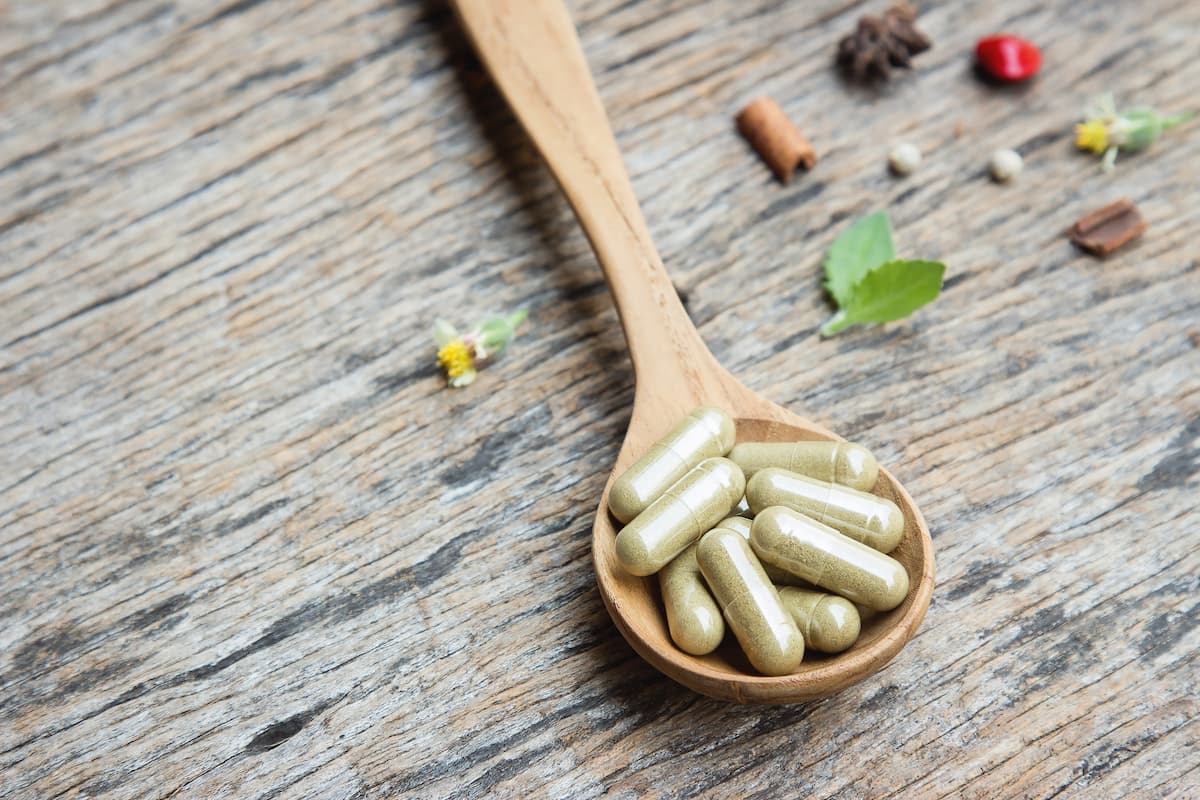
Ashwagandha affects thyroid hormone levels. Find out if you can use it.
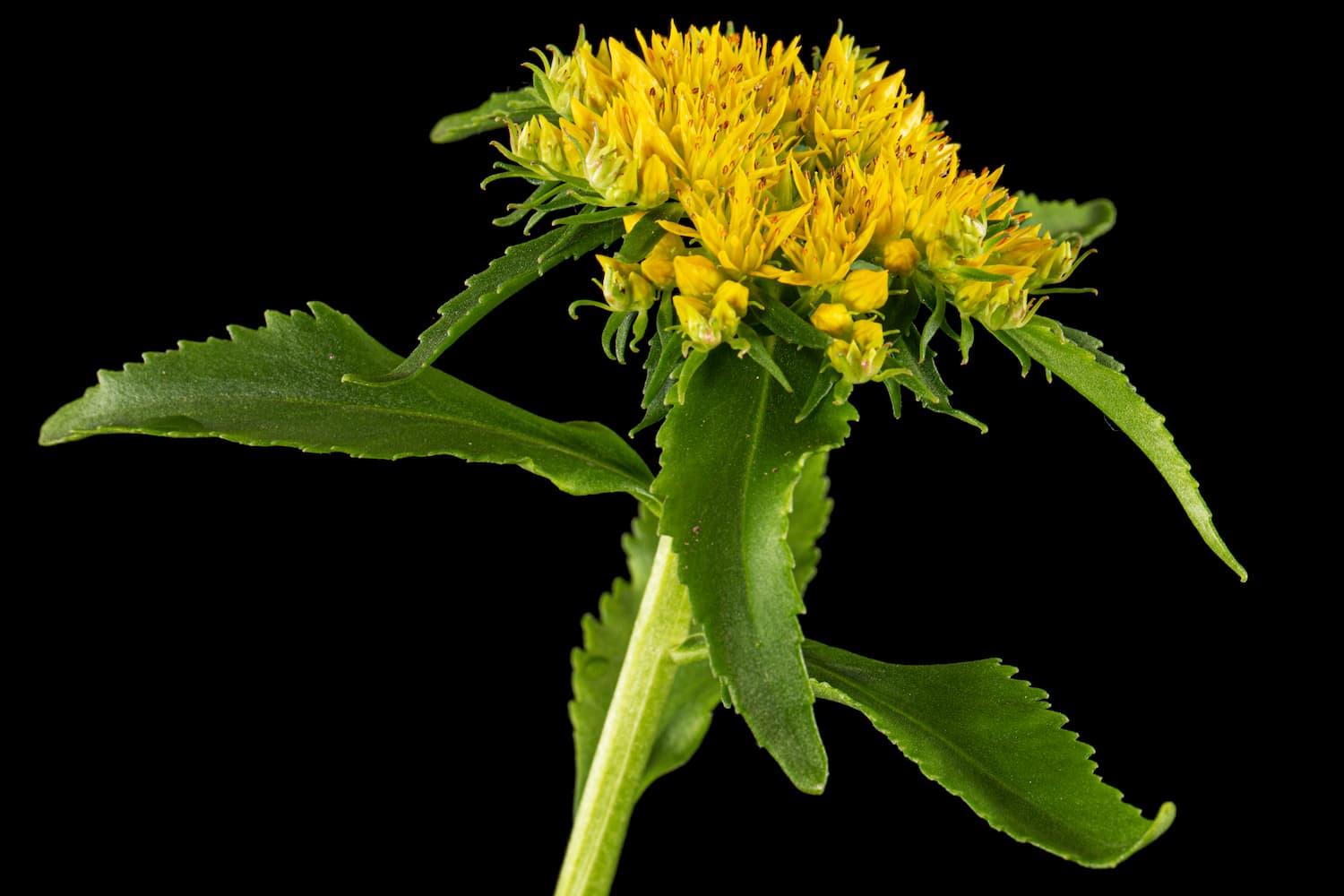
See how mountain pintail can affect your wellbeing.

Check out the opinions of doctors and other professionals about ashwagandha. Also find out what people on the forum think about it.
